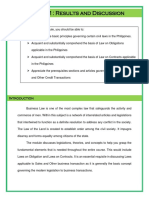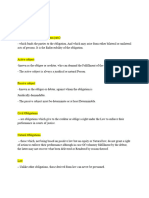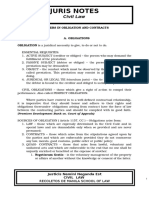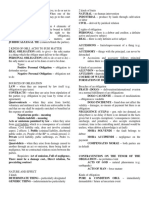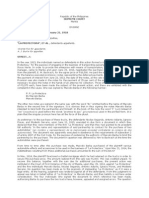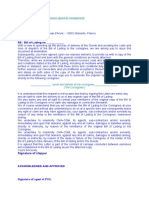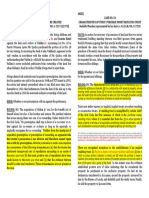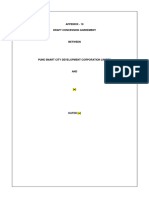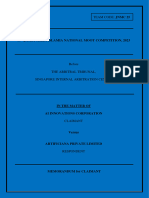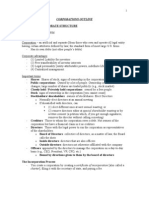0% found this document useful (0 votes)
54 views3 pagesModule 1 - General Provisions
The document discusses the key concepts of obligations under Philippine law, including the sources and requisites of valid obligations, the obligations of the debtor, and circumstances affecting obligations such as delay, fraud, negligence, fortuitous events, and breach of obligations.
Uploaded by
2023309773Copyright
© © All Rights Reserved
We take content rights seriously. If you suspect this is your content, claim it here.
Available Formats
Download as PDF, TXT or read online on Scribd
0% found this document useful (0 votes)
54 views3 pagesModule 1 - General Provisions
The document discusses the key concepts of obligations under Philippine law, including the sources and requisites of valid obligations, the obligations of the debtor, and circumstances affecting obligations such as delay, fraud, negligence, fortuitous events, and breach of obligations.
Uploaded by
2023309773Copyright
© © All Rights Reserved
We take content rights seriously. If you suspect this is your content, claim it here.
Available Formats
Download as PDF, TXT or read online on Scribd
/ 3

















